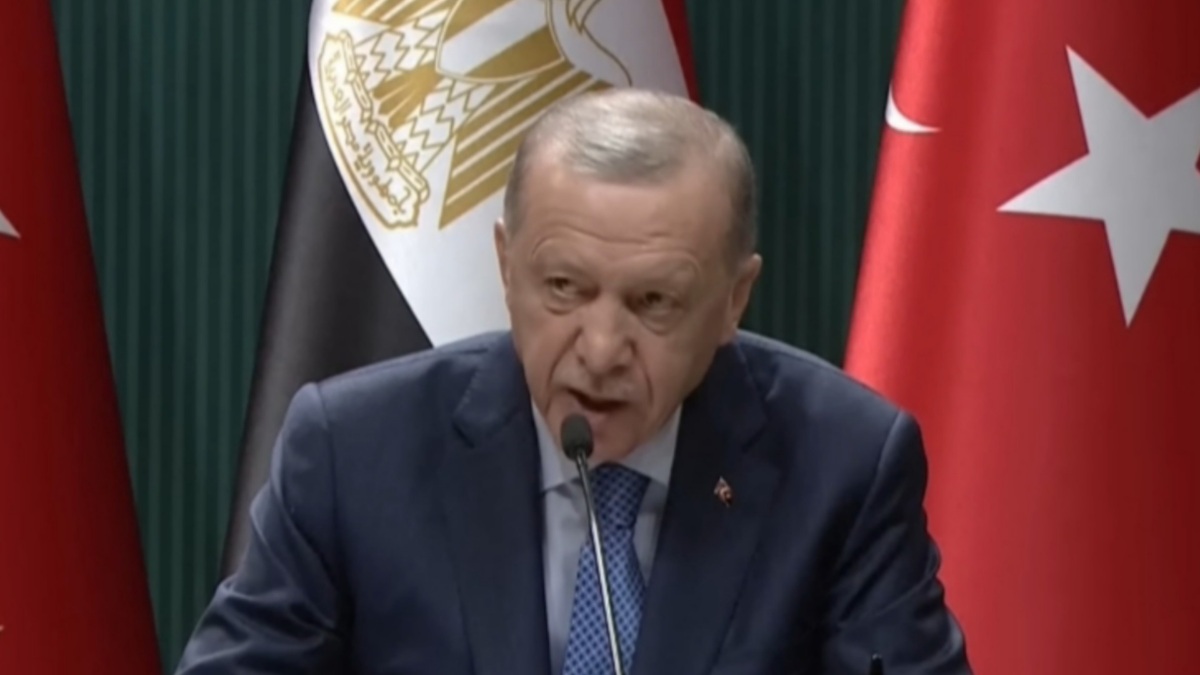
Turkey's Erdogan Calls for Islamic Solidarity Amid Rising Tensions with Israel
2 Min Read
Turkey's Erdogan Calls for Islamic Solidarity Amid Rising Tensions with Israel
Turkish President Recep Tayyip Erdogan has called for greater unity among Muslim nations in response to escalating tensions with Israel.
Speaking at a recent conference in Ankara, Erdogan emphasized the importance of solidarity in addressing what he described as "unjust policies" towards Palestinians.
His remarks come amid a period of heightened friction in the Middle East, drawing international attention to the complex dynamics between Turkey, Israel, and other regional players.
Erdogan's Call for Unity
In his address, President Erdogan urged Islamic countries to come together to support the Palestinian cause.
"We must strengthen cooperation and solidarity among Muslim nations to protect the rights and dignity of our Palestinian brothers and sisters," he said.
Erdogan highlighted the need for a collective approach to address the challenges faced by Palestinians, including issues related to sovereignty, human rights, and access to essential services.
The Turkish leader also criticized recent actions by the Israeli government, citing settlement expansions and restrictions in certain territories.
He called on the international community to take a more active role in facilitating a fair and lasting solution to the Israeli-Palestinian conflict.
Context of Turkey-Israel Relations
Turkey and Israel have had a complicated relationship over the years, marked by periods of both cooperation and tension.
While the two nations have maintained diplomatic ties, disagreements over policies in the Palestinian territories have often strained relations.
Erdogan has been a vocal advocate for Palestinian rights, frequently criticizing Israeli government actions that he views as oppressive or unjust.
In recent years, there have been attempts to normalize relations between Turkey and Israel, including discussions on energy cooperation and diplomatic exchanges.
However, incidents such as clashes at the Al-Aqsa Mosque compound and military actions in Gaza have reignited tensions, prompting strong reactions from Ankara.
International Reactions
Erdogan's call for Islamic solidarity has elicited mixed responses from the international community.
Some Muslim-majority countries have expressed support for greater cooperation on the Palestinian issue, while others advocate for a more cautious approach to regional diplomacy.
Analysts note that unified action among Muslim nations could influence negotiations and potentially shift dynamics in the Middle East peace process.
Meanwhile, Israeli officials have often dismissed Erdogan's criticisms, asserting their right to self-defense and security.
They argue that external pressures should not interfere with internal policies and emphasize the importance of direct negotiations without preconditions.
Implications for Regional Stability
The renewed call for unity among Muslim nations highlights the ongoing complexities in Middle Eastern geopolitics.
Erdogan's statements may bolster his standing among certain constituencies while also affecting Turkey's diplomatic relationships.
Experts suggest that increased cooperation among Islamic countries could lead to new initiatives but also caution that it might exacerbate existing tensions.
"The call for solidarity is significant as it underscores Turkey's intent to play a leading role in regional affairs," said Dr. Ayse Karaca, a Middle East analyst at Istanbul University.
"However, the effectiveness of such a coalition depends on various factors, including the willingness of other nations to align their policies and the responses from global powers."
Looking Ahead
As the situation continues to develop, the international community watches closely to see how Erdogan's appeal will influence regional alliances and the broader quest for peace in the Middle East.
The potential for collaborative action among Muslim nations could introduce new dynamics into the peace process, but it also carries the risk of further polarizing an already volatile region.
For now, the emphasis remains on diplomatic efforts and dialogue, with hopes that renewed focus on solidarity and cooperation might pave the way for meaningful progress in resolving longstanding conflicts.


